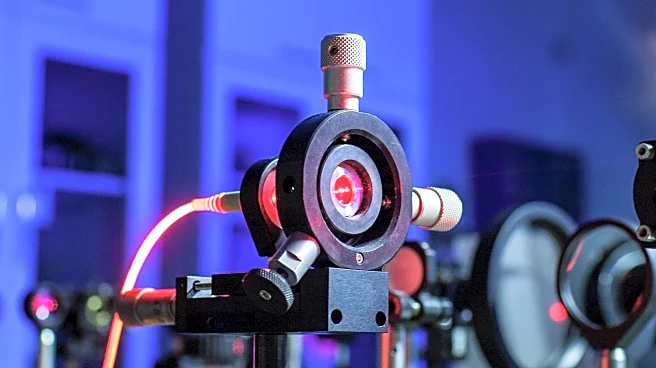What's Happening?
Researchers from the University of Cambridge have discovered inaccuracies in the standard cuff-based method for measuring blood pressure, which may lead to the underestimation of systolic pressure. This method, known as the auscultatory method, involves inflating a cuff around the upper arm to temporarily halt blood flow, then listening for specific sounds as the cuff deflates. The study found that low downstream pressure in the arm can cause the cuff to underestimate systolic readings, potentially missing up to 30% of hypertension cases. The research suggests that simple adjustments, such as raising the arm during measurement, could improve accuracy without the need for new devices.
Why It's Important?
Accurate blood pressure measurement is crucial for diagnosing and managing hypertension, a leading cause of premature death linked to heart disease and stroke. The findings from this study could significantly impact patient health by improving the reliability of blood pressure readings. This could lead to better diagnosis and treatment of hypertension, potentially reducing the risk of heart attacks and strokes. The research highlights the importance of refining existing medical practices to enhance patient outcomes and underscores the need for continued innovation in medical diagnostics.
What's Next?
The researchers aim to secure funding for clinical trials to test their findings in real-world settings. They are seeking partnerships with industrial and research entities to refine their models and validate the effects across diverse populations. Collaboration with clinicians will be essential to implement these changes in clinical practice, potentially leading to widespread improvements in blood pressure measurement protocols.











